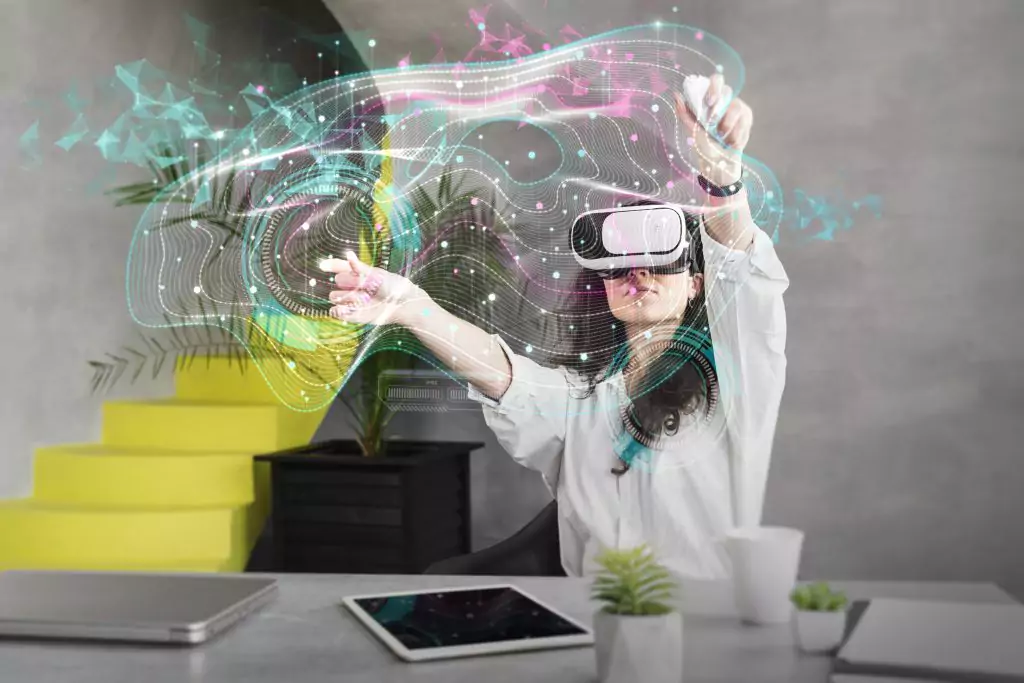
An intriguing piece recently published by The Economic Times delves into the future of work, suggesting a landscape where everyday employees can create and implement automation, eliminating the need for advanced coding skills.

✅ AI Essay Writer ✅ AI Detector ✅ Plagchecker ✅ Paraphraser
✅ Summarizer ✅ Citation Generator
Key Takeaways
- AI’s current sophistication allows it to handle intricate workflows and reduces manual oversight, boosting workplace productivity and enhancing cybersecurity.
- The future holds potential for “Citizen Automation,” where employees without a coding background can create and implement automation, thereby streamlining daily tasks.
- This shift towards automation could lead to a “blended workforce” where AI and humans work in tandem, with AI handling repetitive tasks and humans focusing on high-value, creative work.
AI’s influence on our lives extends far beyond asking Siri for information or engaging ChatGPT for article creation. Its pervasive impact in the workplace is transforming our approach to routine tasks, with predictive analytics and automated administrative tasks leading to increased efficiencies.
By streamlining processes previously mired in manual handling, AI can offer insights into customer data and trends, creating avenues for innovative marketing and product strategies. It also bolsters cybersecurity, preemptively identifying threats.
The Downside of Technology & Rise of Citizen Automation
Despite its efficiencies, the current technology landscape is not without its pitfalls. Employees frequently grapple with managing information from multiple sources, navigating incessant notifications, and switching between different software applications. This whirlwind of tasks leaves room for errors and consumes time that could be better spent on productive initiatives.
But what if employees could take control of their job functions by leveraging automation technology? The concept of “Citizen Automation” paints a picture of this possibility, where professionals can create and implement automation without prior coding knowledge. By leveraging low-code platforms such as Robotic Process Automation (RPA) or no-code tools, employees can create smarter processes to address challenges.
The Future of Work: A Blended Workforce
Given that automation cannot replace the human capacity for creativity, problem-solving, and strategic decision-making, the future likely lies in a “blended workforce.” AI and humans working together can facilitate a more efficient work environment, with automation taking care of mundane tasks and human workers focusing on high-value, innovative work.
The Economic Times suggests that the future of work may well be an environment where technology is democratized, and the power of automation lies in the hands of those who can benefit from it instantly. This shift could redefine productivity, efficiency, and job satisfaction in the modern workplace.
Top 10 Automation Trends Transforming the Future of Work
Identifying upcoming trends that will shape the workplace of tomorrow is quite crucial. Especially if you want to stand firmly in the job market. These trends promise not only to enhance productivity but also to redefine our concept of a conventional work environment. So, let’s explore the top 10 automation trends that are set to revolutionize the future of work.
- AI and Machine Learning: AI and Machine Learning will continue to evolve, automating complex tasks and making predictive analytics more accurate.
- Robotic Process Automation (RPA): With the potential to automate repetitive and time-consuming tasks, RPA is set to be a key player in future workplaces.
- No-Code Platforms: These user-friendly platforms will empower more employees to create automation workflows, reducing dependency on IT teams.
- Process Mining Technology: This will be instrumental in identifying bottlenecks and inefficiencies in business processes, paving the way for effective automation.
- Intelligent Virtual Assistants: Enhanced with AI, virtual assistants will manage schedules, emails, and other administrative tasks more efficiently.
- Hyperautomation: This involves combining several automation tools and technologies, such as AI and RPA, to automate processes in a much more integrated way.
- AI-Driven Cybersecurity: Automation will play a vital role in identifying and preventing cyber threats in real-time, strengthening organizational security.
- Data Automation: From collection to analysis, data processes will be automated to a greater extent, yielding quicker insights.
- IoT and Automation: Internet of Things (IoT) devices will increasingly be used to automate tasks in sectors like manufacturing and home automation.
- Workforce Automation: Beyond task automation, the entire management of the workforce, including hiring, onboarding, and performance monitoring, may become automated.
These trends paint a picture of a future where automation, working hand in hand with human creativity, will reshape the way we work, making our workplaces not only more efficient but also smarter and more flexible.
Read also:
Post-COVID Education Technology Boom Is Here to Stay
Industry Leaders Share Their Insights on Tech Careers in an Evolving Landscape
Shifting Job Market: College Grads Navigate from Tech to Other Thriving Industries
Follow us on Reddit for more insights and updates.





Comments (0)
Welcome to A*Help comments!
We’re all about debate and discussion at A*Help.
We value the diverse opinions of users, so you may find points of view that you don’t agree with. And that’s cool. However, there are certain things we’re not OK with: attempts to manipulate our data in any way, for example, or the posting of discriminative, offensive, hateful, or disparaging material.